Digging in the Dirt: May Planting and Chapter Projects
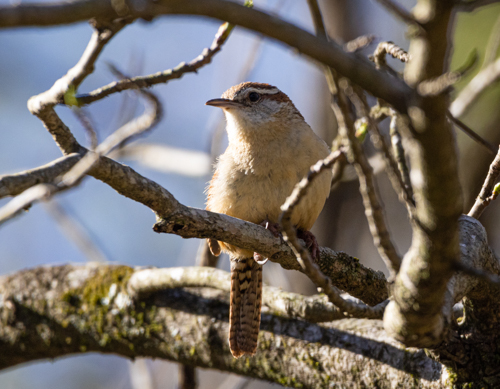
May planting and chapter highlights
North Carolina Wildlife Federation staff and Community Wildlife Chapter volunteers did a whole lot of dirt-digging, planting, community education, bird watching and litter collecting in May to promote healthy wildlife habitat and get people outside. Director of Conservation Partnerships Tara Moore shares updates below, including a few from April events.
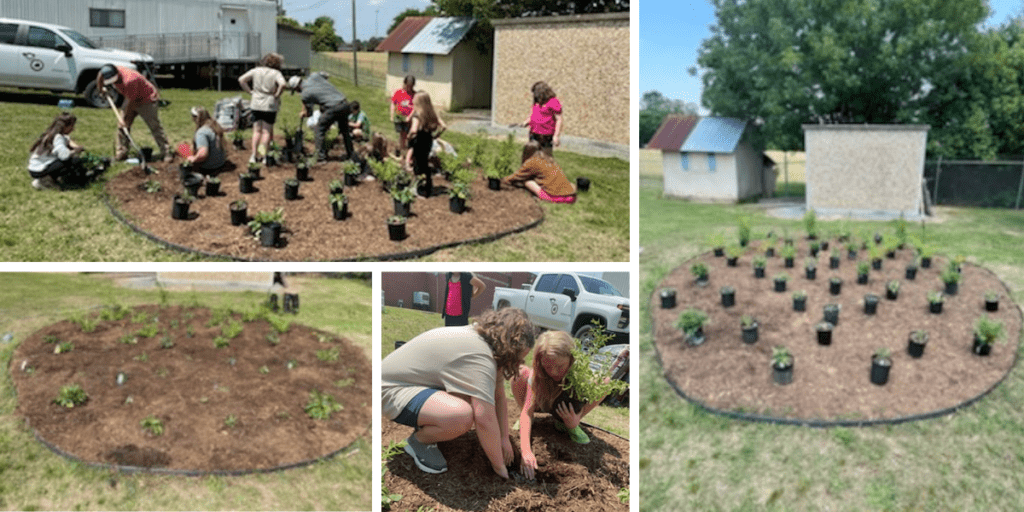
Union County Wildlife Chapter school planting, May 19. Union County Wildlife Chapter leaders engaged local youth in the environment by organizing a pollinator planting of over 50 native pollinator plants at New Salem Elementary School. The environmental club students were engaged and interested in learning about pollinators, host plants and the wildlife habitat that they created right on their school’s property.
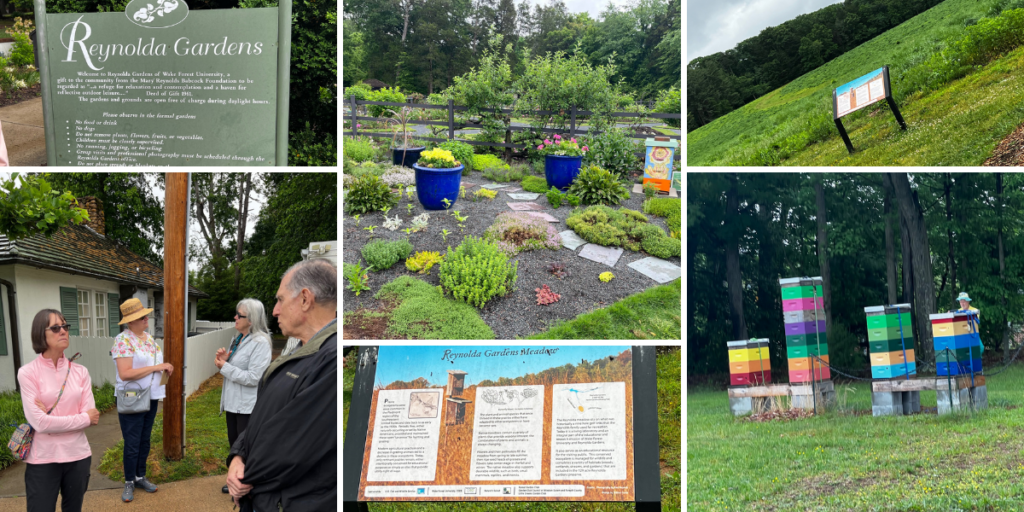
Tour of Reynolda Gardens, May 14. Concord Wildlife Alliance and Triad Wild! had a great time at Reynolda Gardens, touring the gardens with Jon Roethling, director of Reynolda Gardens. Chapter members toured the formal gardens, plant propagation area for their fall sale, and the meadow they are working to restore. The tour’s highlight was the meadow garden, where participants noted a plethora of native species, common and uncommon. The meadow sits on a historic nine-hole golf link reclaimed as a garden meadow and is now used as an educational resource.
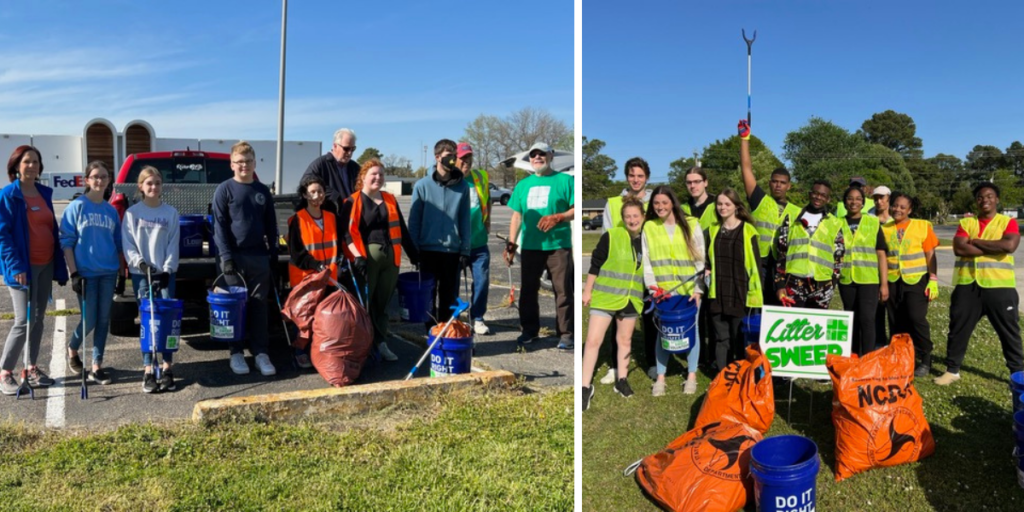
Neighborhood Cleanup Challenge, May. NCWF’s Neighborhood Cleanup Challenge kicked off in May for its 3rd year, with people across the state collecting more than 17,000 pounds of trash total. Chapters rallied their troops, and individuals came forward with multiple bags of trash, all towards bettering our wildlife habitats.
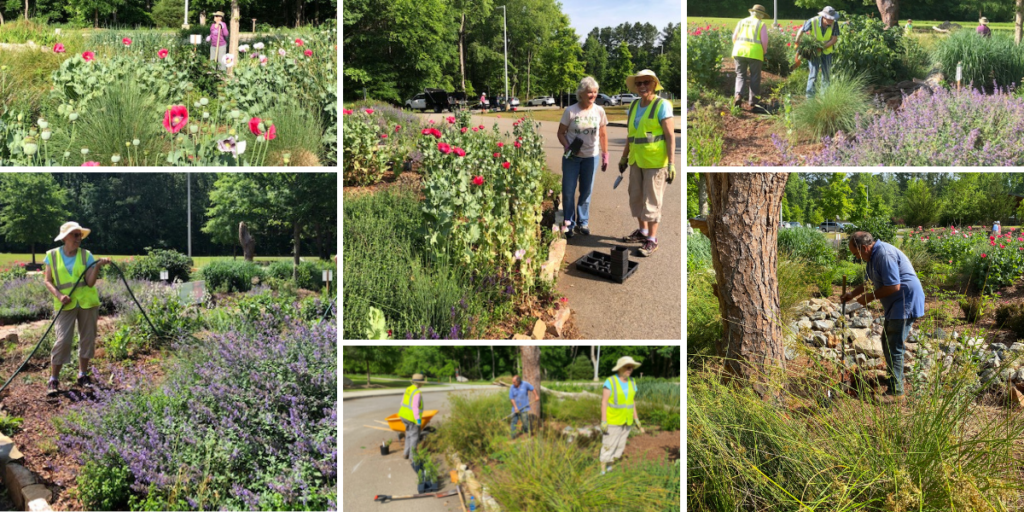
Pollinator Planting Day, May 24. Eleven Neuse River Hawk volunteers gathered for a Spring planting at the Forest Ridge Park Wildlife Garden, a beautiful site on the Butterfly Highway. The Neuse River Hawks have planted and maintained this garden for five years.
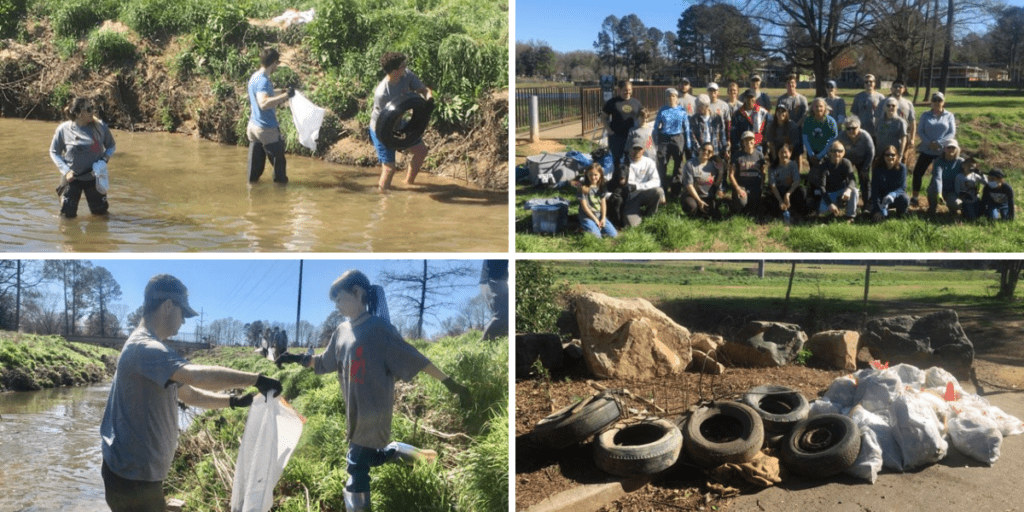
I Spy … Trash, April 10. Charlotte Wildlife Stewards I Spy … program took a bit of a twist by joining Stormwater’s Creek Week to clean up trash at Chantilly Ecological Sanctuary. On a gorgeous sunny day in March, 35 volunteers removed approximately 1000 pounds of trash from in and around Briar Creek. Items found included five tires, a grocery cart basket, a traffic cone, a rubber floor mat, and a variety of bottles, cans, plastic bags and other miscellaneous types of trash. Volunteers included families and individuals of all ages. And one dog.
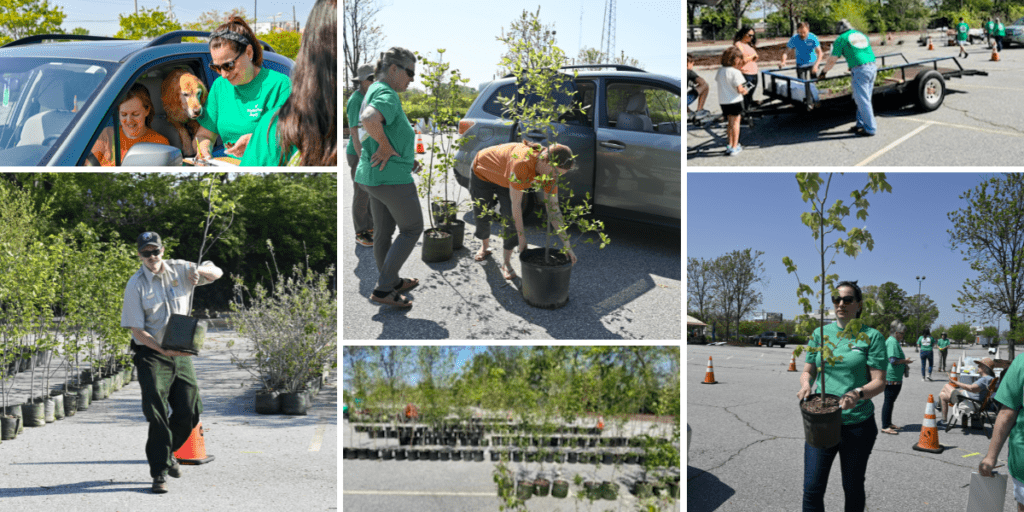
NC Bradford Pear Bounty, April 23. NCWF, NC State Extension, Urban Forest Council and NC Forest Service gathered to organize the first Bradford Pear Bounty in North Carolina. Residents who cut down an invasive Bradford pear from their yards received a native tree replacement. This first bounty event took place in Greensboro, where over 200 trees were claimed by Greensboro residents who had removed Bradford pears from their communities. The next NC Bradford Pear Bounty event will occur in Matthews this fall, with goals to conduct at least four events annually.
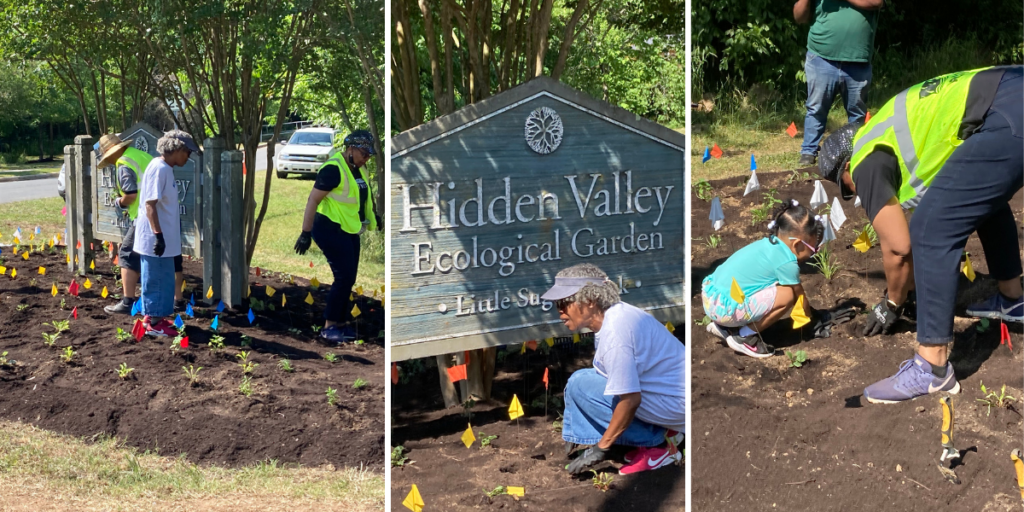
Hidden Valley Community Planting, May 18. NC Wildlife Federation and Charlotte-Mecklenburg Storm Water Services partnered with Hidden Valley Community Association for a planting event at Hidden Valley Ecological Garden in Charlotte. In 2020, the North Carolina Wildlife Federation (NCWF) received a placemaking grant from the City of Charlotte to partner with Charlotte-Mecklenburg Storm Water Services (CMSWS) to improve the garden for wildlife and residents.
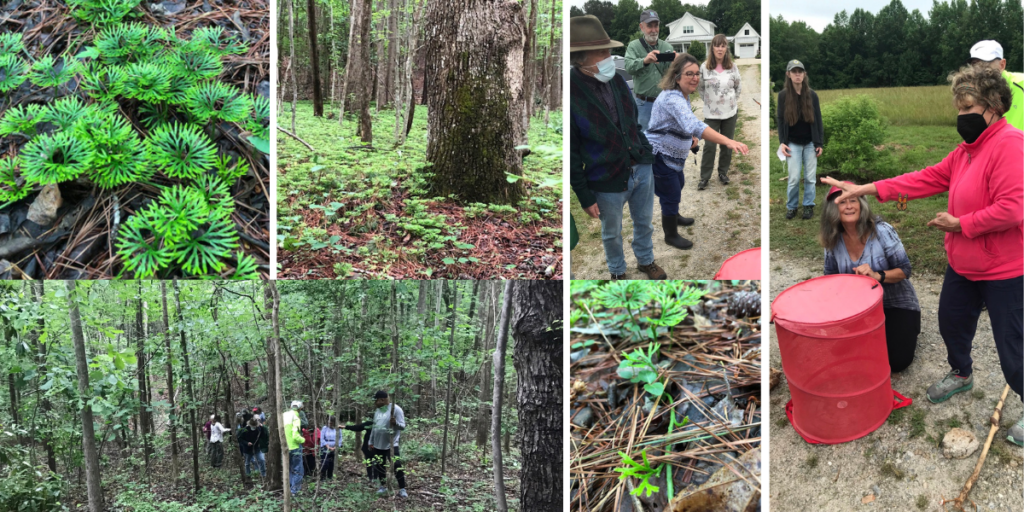
Woodland Nature Walk, May 25. The Neuse River Hawks led a nature hike in Wake Forest to explore the plants and wildlife on one of their own member’s properties. Members encountered sun and shade species and loved exploring the woodland habitat. After the walk, participants helped in a monarch butterfly release on site.
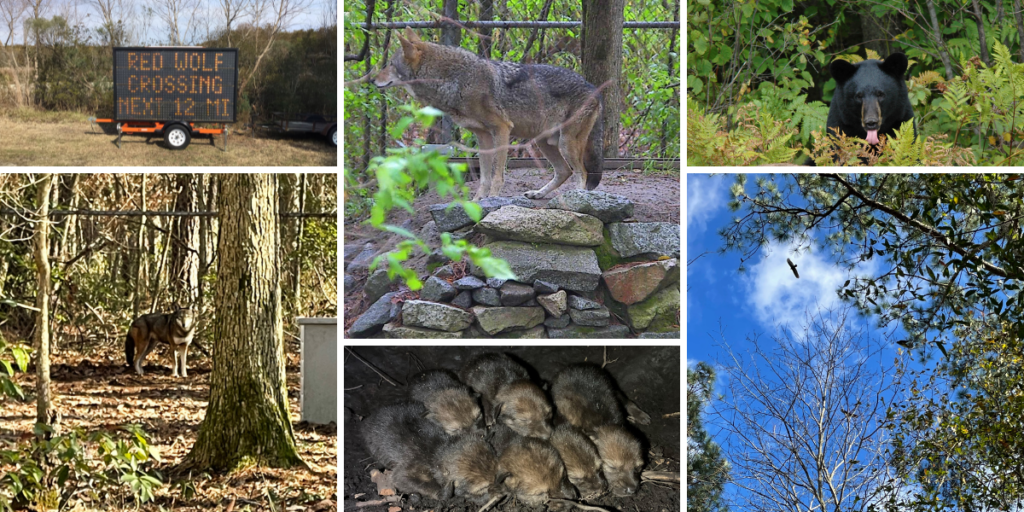
1st Chapter Meeting of the Albemarle-Pamlico Wildlife Chapter, May 11. This new chapter met for its first meeting in Plymouth, NC, to discuss the footprint of the new chapter, focus topics, upcoming projects and more. The new chapter will focus on the several counties and refuges in the Albemarle-Pamlico peninsula area.
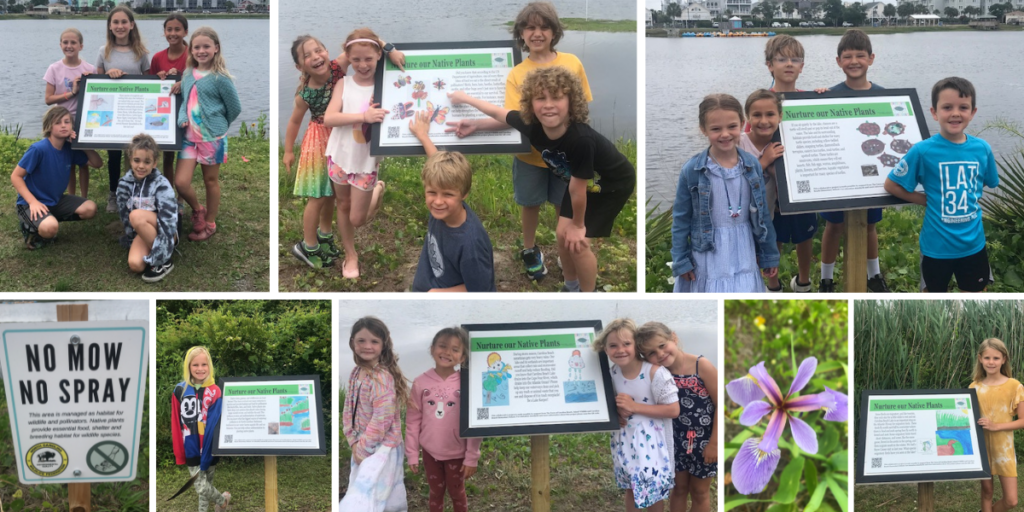
Habitat Restoration Sign Installation, May 24. In 2020, Island Wildlife – Cape Fear Region, an NCWF chapter, created a project that led to the restoration of 300 feet of shoreline around the lake in Carolina Beach. We hosted two outdoor education sessions with N.C. State Extension on stormwater, shoreline stabilization, and native plants. Community volunteers completed the installation in December 2020. Native plant species help prevent erosion, improve water quality, and create a healthy habitat for humans and wildlife. These initial efforts were supported by a coalition composed of NHC Extension, Cape Fear River Watch, NC Sea Grant, POP and the Town of Carolina Beach Parks and Recreation. Unfortunately, much of that area was damaged by an herbicide mishap shortly after installation. Island. Wildlife worked with the town to install new native plants this spring (April 8, 2022). As part of an emerging collaboration with Carolina Beach elementary school, students helped with the re-planting. Island Wildlife and the town collaborated on installing permanent educational signs similar to the Story Walk signs, with plates that can be interchanged and replaced (new projects, new art, new species, etc.). These signs include educational information and art from each grade level at the school. This is an ongoing collaboration with CBES, both for art-making and to utilize this area as an outdoor classroom. This ongoing project will support the use of this area as an outdoor classroom and as a place where the community may gain a deeper appreciation for the native species, wetlands, and natural areas in this unique community.
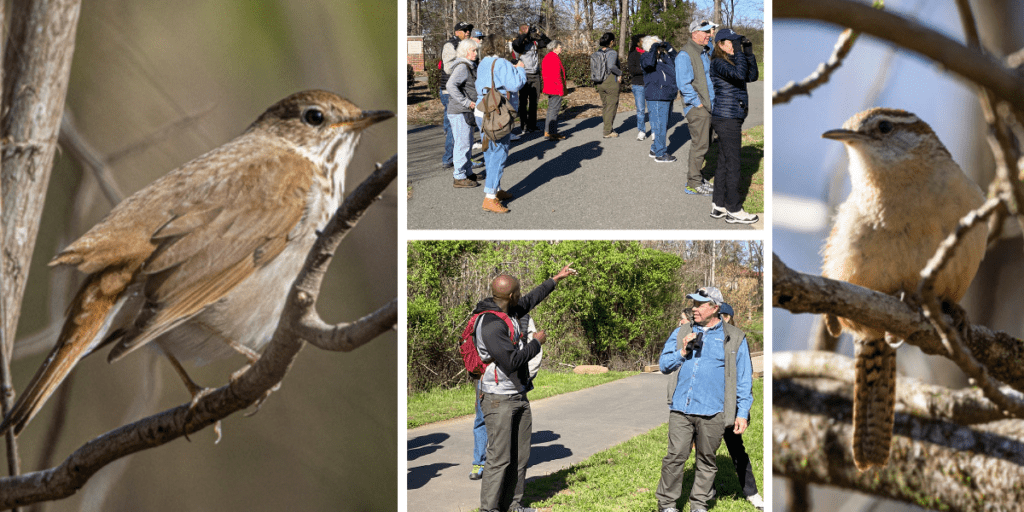
Bird Watching on the Greenway, April 2. In early April, Concord Wildlife Alliance members were treated to a bird-watching walk at Hector Henry II Greenway guided by Matthew Morgan, Environmental Educator for Stevens Creek Nature Center. Participants brought binoculars and identified over 20 species of birds on the greenway, some common and some that are harder to spot.
3 ways to support wildlife habitat
- Download our Habitat Restoration Volunteer Toolkit to learn how you can organize trash clean-up and planting events in your community.
- Sign up for our Butterfly Highway newsletter, which has everything you need to know about pollinators and native plants for your yard and where to buy them.
- Explore our Events Calendar to find out where NCWF and our Wildlife Community Chapters are hosting habitat restoration activities near you.

